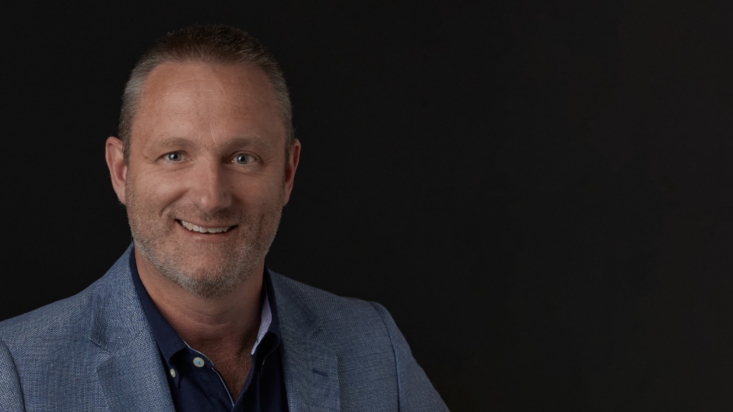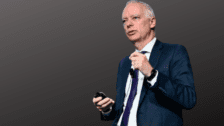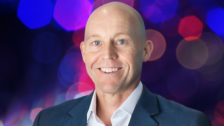A real measure of wealth: Paxton Bridge’s David Murdoch
Plenty of financial advisory firms try to give themselves a distinguishing edge. But to David Murdoch, principal at Melbourne firm Paxton Bridge, his firm’s differentiator – the concept of “wealth activism” – was a slow burn.
Initially, Murdoch did not envisage a path that led into advice.
After an undergraduate business degree in banking and finance, he initially leaned toward the ‘business’ side, working with retailer Country Road for several years; then explored finance, working at SG Warburg in London; and then, back in Australia, working at Bonds – as in, the underwear maker – and subsequently at Computershare, in a sales and marketing role. But all the while, an interest in wealth management was building.
“In 2007, I ended up getting a role at UBS, as what they called a ‘lateral hire,’ someone who hadn’t come out of a broking or investment bank background,” he tells The Inside Adviser. “They wanted to bring in people from different backgrounds, which was great for me. I chose UBS because they worked at the high end, but it was still very much driven by the broking side, and ultimately that didn’t suit the philosophy I was developing.”
Murdoch looked around for a firm that did suit that philosophy, but drew a blank. The only thing to do was establish one, which he did, opening Paxton Bridge in the Melbourne suburb of Windsor in 2009.
Then, it was time to implement another slow-burning idea.
“We call it ‘wealth activism,’ which is built around the verb – how do you ‘activate’ your wealth? By which we mean, to do with it what you really want to do,” Murdoch says.
There are three pillars of wealth activism. The first is asset management. “That’s very much the traditional model of financial planning; How much money do you have? What is your risk tolerance? What are your financial goals?” Murdoch says.
“Then, it’s really important to understand a person’s money mindset, which is their relationship to money. How does money make you feel? Usually, people either have a scarcity or an abundance mindset. But also, that depends on what your background is,” he says.
“And the third pillar is inter-generational wealth, and their attitude to that. When you wrap all three of those together, that’s where you get ‘wealth activism’ in the centre, because each is inter-connected.”
Paxton Bridge’s philosophy is that success is the strength of someone’s personal relationships with family and friends. “That is the real measure of wealth,” says Murdoch. “The foundation piece, for us, is values. Money can change people, and not always in a good way. Money can be used to control. There is always emotion involved in money, but money without values is not much good to anyone.”
‘Activation’ means developing the thinking around the wealth, which people often have not done. “Not many wealthy people have really thought through, what is my wealth for?” says Murdoch. “You’d be surprised how many of them feel that they were lucky, that the cards fell for them in a certain way. They have never grasped the totality of their wealth, and I’m not talking about the dollar amount. Our job is to get them thinking.”
It was inevitable that business wealth was at the centre of Paxton Bridge. “There’s not a business associated with all our clients, some of them are professionals and executives, but I really like the SME proprietors as clients. These are people who are very entrepreneurial, they’ve started a business, and it’s grown over the years, to be more successful than they ever dreamed. And usually, it evolves into a family group, a family office.”
Murdoch works with a network of specialist suppliers, in areas such as tax, legal, estate planning and succession planning – and any other speciality a client may require. He says the firm’s “virtual family office” offering has become crucial. “Having everything centralised so that all generations can be involved in discussions and decisions, as well as the education element for future generations, is a key success factor for many families in this situation,” he says.
“The more your children – and grandchildren – are exposed to, and are part of, conversations about money and the family wealth, the greater the chance that they’ll make successful financial decisions in the future. If there isn’t complete transparency the emotions can take over, and families can end up fractured. Being very clear on how you’re going to ‘activate’ the wealth will go a long way to making sure this doesn’t happen.”
It is all about transparency, understanding, and a sense of purpose, he says.
“There’s no issue having lots of money, you can keep everyone grounded, with the right conversations. You can take the right opportunities. Instead of, say, supporting your children into a piece of real estate, do it as a loan; that will help them understand that that just doesn’t come to them, because if it does, there’s no sense of purpose for them.”
Business founder/proprietors are often not always open to transparency, by temperament; but Paxton Bridge enforces it. “We will reschedule a meeting, for example, if the spouse can’t make it,” Murdoch says. “We want to work with the couple, because if one is the stronger financially, if something happens to the other, often, the spouse doesn’t know what the hell’s going on.”
This is not retail advice; Paxton Bridge has a minimum fee of $12,000 a year. Murdoch says this often raises eyebrows, until clients understand what fees they are paying in total, in all areas. “Quite often, our clients don’t know what they are spending in total on insurances, commissions and percentage of funds under management. But we take them through the fact that we’re working with a team of experts chosen by them, we have the ‘bigger picture’ for their family in mind, and we’re providing a clear pathway for decision-making, growth and wealth transfer. You can’t value peace of mind.”











